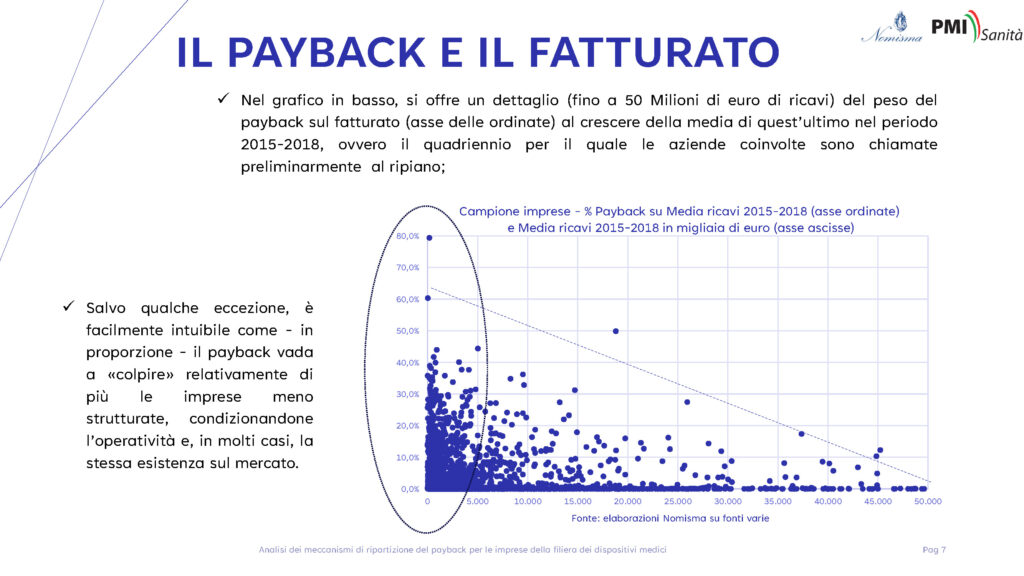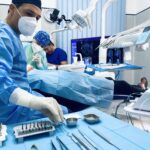With the mechanism of the so-called ‘medical device payback’ – introduced in 2015 by the Renzi government, but in fact never applied until now – the state intends to offset the increase in public healthcare spending for the purchase of medical devices, shifting part of the costs for healthcare from the regional budget holes onto the companies in the sector, which thus risk not even covering their costs and going bankrupt. As can be easily deduced, the legislator’s choice is frightening and unreasonable in many respects – it is no coincidence that the Lazio Regional Administrative Court, section III-quater, doubts the constitutionality of the rule and has referred the matter to the Constitutional Court for violation of Articles 3, 23, 41 and 117 of the Constitution. Among the hypotheses of unconstitutionality, the violation of free private economic initiative stands out since, especially SMEs in the health sector (about 80% of national hospital suppliers), would be subjected to an unforeseen and unpredictable cost and could disappear. Illustrating the impact of this legislation on Italian SMEs is Dr. Gennaro Broya de Lucia, president of PMI Sanità, the new National Association of Small and Medium-sized Enterprises committed to supplying hospitals with the material needed for diagnosis and treatment of Italians.
by Roberta Imbimbo
Dr Broya de Lucia, what are the main regulatory changes regarding the so-called ‘payback’ with reference to the supply of medical devices?
The payback mechanism comes into play when regions continue to purchase medical devices that are essential for surgery and the provision of hospital care above the threshold of 4.4% of total healthcare expenditure. This threshold, which was already inadequate when it was identified back in 2011, because it was underestimated by 50% compared to the European average, imposes real ‘balancing acts’ on the regions in order to deliver care and operate hospitals. We would have expected an adjustment of this barrier, but instead we have found ourselves with a law that calls in the suppliers of devices, asking them to participate in the compensation even to the extent of 50% of the deviation. It is easy to deduce, therefore, that we are talking about substantial sums, currently estimated at around EUR 2.1 billion for the relevant years (2015-2018), which the supplier companies would have had to pay into the state coffers by January 2022, or which the regions could have even offset against the invoices still unpaid to the companies for the supply of the devices, up to the amount of the alleged debt.

In short, a real drain on Italian SMEs…
Unfortunately, yes! Then again, on closer inspection, it is a rule born of a lack of knowledge of the sector because it was designed for a totally different sector from that of medical devices, i.e. the pharmaceutical sector. Unlike the pharmaceutical market, in fact, where the payback acts as a sort of discount to the final balance (given that most drugs are ‘negotiated’ with the AIFA), the medical device purchasing mechanism is always subject to public tenders with a budgeted expenditure ceiling, on which a downward competitive procedure is launched between the various competitors from all over Europe! This means that discounting already takes place upstream and is often as high as 30-40% of the auction base price. Moreover, even if forced to sell below cost due to the application of payback, medical device supply companies cannot even refuse to supply, not only out of conscience but under penalty of prosecution for interruption of a public service!
If not repealed by the government, what would be the consequences of this legislation on the companies in the health sector?
If the government did not repeal the payback, we would be faced with severe criticalities, not to mention that if this mechanism were to pass, who would prohibit it from being applied to other sectors as well? A recent study by Nomisma, which we commissioned, entitled ‘The impact of the payback on companies in the supply chain’, shows that there are over 2,000 companies and 200,000 jobs that could vanish as a result of the payback demand on medical devices. According to this survey – which involved a sample of 4,000 active companies throughout the country – this mechanism would mainly affect SMEs, conditioning their operations and very survival, since they would be called upon to pay an amount equal to over 60 per cent of the entire value of turnover (not profits!) in the last financial year. It is estimated that about 85% of SMEs would go bankrupt due to an economic taxation greater than the value of the company itself.
In short, we would be heading for catastrophe…
The payback would have a negative impact on employment levels (around 150,000 workers would be at risk of dismissal). In addition, the inevitable closure of small and medium-sized enterprises would lead to a halt in the supply of stents, heart valves, and life-saving devices to hospitals, further penalising citizens in need of care; what’s more, even multinationals, which initially survived the phenomenon thanks to generous financial possibilities, would no longer have any ambition to invest and operate in Italy, on pain of constant and now-conscious subjection to operating losses.
SMEs are the real engine of the Italian economy. With the aim of continuously assisting them and enhancing their social role, therefore, as well as blocking the unjustified burdens imposed by the payback, PMI Sanità, a strongly representative trade association, was born.
Exactly. For years, the National Health System, one of the most competitive in Europe, has been guaranteeing high quality services thanks to the professionalism and continuous investments made particularly by SMEs in the sector. In our country there are about 2,500 production SMEs, 1,600 distribution companies and 380 service companies, which together produce or distribute medical devices for a total volume of more than 10 billion euros. Companies that invest in young people and professionalism because they are repositories of highly specialised know-how that should be protected and not harassed! More than 80 per cent of supply contracts with public administrations are in the hands of SMEs, and it is from this awareness that our commitment to act on the planning and development of a sustainable and value-based procurement system stems, as we recently reiterated with the president of the Italian HTA Society Giandomenico Nollo. Until now, however, there has been a lack of an association that represents and defines the programmatic lines of a common action for SMEs in the sector and develops a constructive dialogue with the institutions. PMI Sanità was set up with the ambitious objective of constantly assisting its member companies and guaranteeing their operability on the market, clamouring for the launch of a decidedly fairer health expenditure control mechanism, the raising of the expenditure ceilings for medical devices to European levels, and the enhancement of their role in the Italian Health System.
For more info (https://www.pmisanita.org associazione@pmisanita.org)






















































